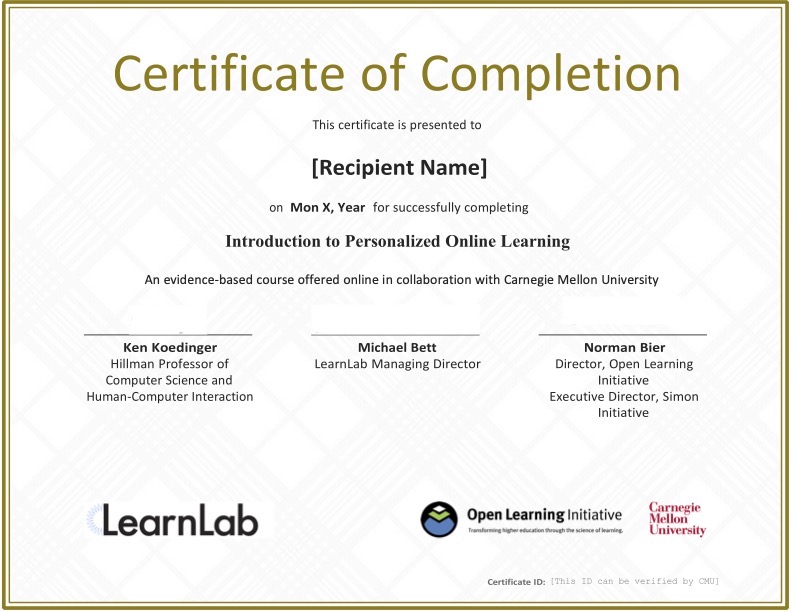Courses
Develop expertise in learning sciences through self-paced certificate courses
Learning Sciences from the home of learning engineering, Carnegie Mellon University. Courses begin with the fundamentals, and new courses will be introduced here throughout the program.
Multimedia for e-Learning Series
The Multimedia Principles, developed by Richard Mayer, outline guidelines for effective multimedia inclusion in e-learning. These principles are crucial for learning because they optimize how learners engage with instructional materials, enhancing comprehension, retention, and transfer of knowledge.
The Multimedia Principles are covered in three courses in the Multimedia Sequence:
- Essential Learning: Focusing on Key Elements
- Efficient Learning: Minimizing Mental Strain
- Generative Learning: Promoting In-depth Understanding
This foundational course sequence is especially relevant to Instructional Designers, UX Designers, and Developers who craft e-learning experiences.
Intro to Learning Engineering Series
Learning Engineering, pioneered by Herb Simon at Carnegie Mellon University, blends science and technology to optimize learning outcomes, improving effectiveness and efficiency. This interdisciplinary field integrates insights from learning sciences, instructional design, data analytics, and technology to develop learning solutions.
Throughout the courses in this sequence, you’ll delve into essential concepts and processes at the heart of Learning Engineering, building a foundational understanding.
- E-Learning Foundational Theories and Principles
- Designing Clear Learning Goals
- Designing Assessments for Learning
This course sequence is not only useful for instructional technologists, but anyone who supports edtech (in any role) can benefit from this foundational course.
Learners who have completed the enrollment form will be emailed a link that will take you to the Torus Account page. Instead of signing in, learners will need to create an account for the first time.

Upon successful completion of the program, participants will receive a verified digital certificate of completion from Carnegie Mellon University’s Open Learning Initiative that you can add to your resume and LinkedIn.

